Learning and knowledge sharing are fundamental to the LHSS Project. We invite you to search LHSS knowledge products and resources for the latest approaches, insights, and learning in the field of integrated health systems strengthening.

LHSS shares Vietnam experience transitioning from PEPFAR to the government-led ARV supply chain system at the GHSC Summit in Nairobi, Kenya, Nov. 14-16, 2023.

Two years ago, as it struggled to contain the spread of the COVID-19 virus and get people vaccinated, the Government of Jamaica turned to private health care providers for help. The results went well beyond its expectations.
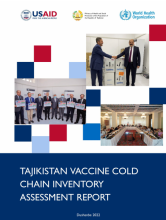
The assessment findings inform the MoHSPP and its international partners on interventions to improve the quality of vaccination services, not only for COVID-19 but beyond. This ultimately leads to increased access to improved services in Tajikistan.
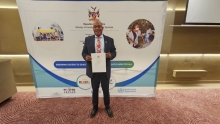
LHSS supports the Ministry of Health and Social Services in Namibia for the development of the country's groundbreaking UHC policy and Essential Health Services Package.
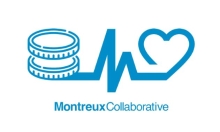
LHSS presents on health budget execution at the Montreux Collaborative on Fiscal Space, Public Financial Management and Health Financing, November 13-17, 2023.
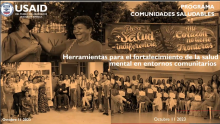
In this webinar, panelists from academia and territorial entities discussed LHSS Colombia response to mental health.
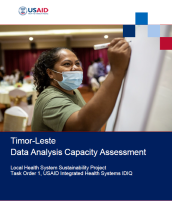
The purpose of the DACA was to assess: the Ministry of Health (MOH) data use and data quality processes; the opportunity and capacity of different levels of the health system to analyze data; health management information system (HMIS) governance; electronic HMIS deployment; the state of interoperability, and COVID-19 data capture.
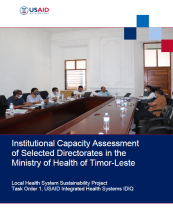
The purpose of Institutional Capacity Assessment is to identify interventions the Activity can undertake in partnership with the GoTL to strengthen their capacities to improve health-system governance and functioning.
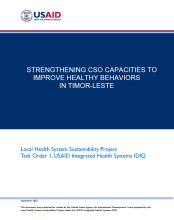
The Activity identified despite the many SBC interventions implemented in the communities, local organizations and especially the civil society organizations do not have sufficient capacity and resources to design, implement, and monitor evidence-based SBC activities. To address these issues, the Activity is partnering with a local organization to strengthen evidence-based design, implementation, and monitoring of SBC activities. The Activity is focusing on enabling local actors to lead implementation of an SBC activity while strengthening support for priority capacities.
This document explores the issues facing the Timorese health system, identifies the existing mechanisms for engagement between the MoH and CSOs, and offers recommendations to improve the engagement.
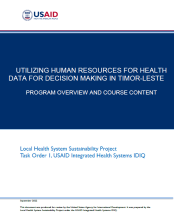
To respond to the ICA findings and to address the issues noted above, USAID’s Health System Sustainability Activity (the Activity) worked with the NDHR and INS to develop training on health workforce data use for decision making. The training will use a problem-based, hands-on approach to train mid-level managers within the Directorate General of Corporate Services (DGCS) to use HRH data to identify challenges; conduct analysis; engage relevant stakeholders in the collection and sharing of HRH data; use of HRH data to support decision making. Most importantly, it will ensure equitable allocation of workforce and improve training and professional development opportunities for the health workforce across the country especially at the primary health care level.
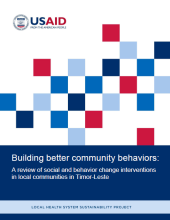
This summary review of social and behavior change (SBC) interventions was conducted to understand barriers to healthy behaviors in inclusive reproductive, maternal, neonatal, child, and adolescent health and nutrition (RMNCAHN).
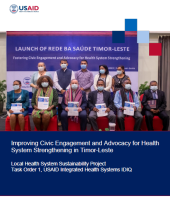
The USAID Activity and REBAS-TL have co-developed a pathway describing how the network can evolve into a trusted and effective collaboration and best represent the community’s voice across health issues. This document captures this pathway plan, progress so far, and next steps.
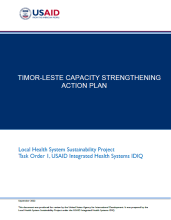
USAID’s Health System Sustainability Activity (Activity) addresses systemic challenges to Timor-Leste’s self-reliance on low institutional capacity to generate and use data for decision-making.

The video provides evidence-based information about COVID-19 vaccination to decrease vaccine hesitancy among women. It discusses the importance and benefits of vaccination for women and their families.
